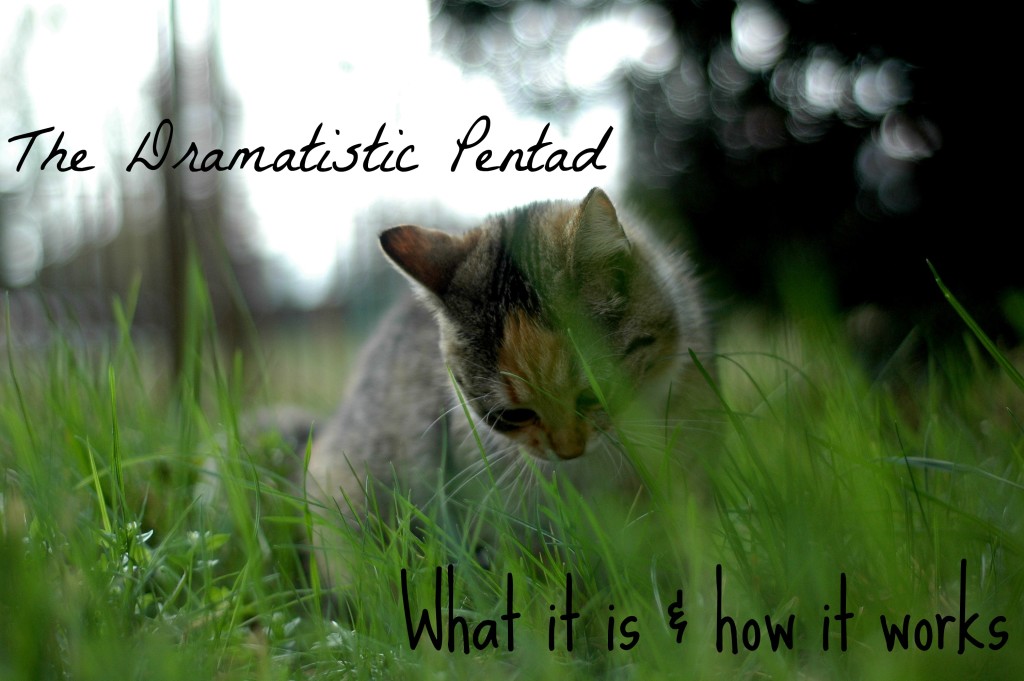Kenneth Burke's Dramatistic Pentad goes hand in hand with the Narrative Paradigm because of the focus on human motivation and theatrics. The kind of language that we use and the way we express ourselves are strategies to convince others of our viewpoints. If the speaker has the ability to identify with the audience, they can then elicit sympathy, which goes a long way in persuading people.
The Dramatistic Pentad is made up of five elements:
1. Act: what happened.
2. Scene: where it happened. This includes circumstances, location, and time (temporal, spatial, and environmental).
3. Agent: who it is; the actor. Co-agents and counter-agents are also involved.
4. Agency: how it happened and the instruments and methods used.
5. Purpose: why it happened.
Although these five elements of the Dramatistic Pentad are combined in a narrative, usually only one or two are dominant in the story. Scenes and acts are the most commonly used. Agents are sometimes at the core of the story, but purpose rarely is. In news stories, for example, we often hear what happened and how it happened, and who it happened to, but the reason why is not so crucial to the telling. This in itself is an interesting note to make on how our society is run.
By placing emphasis upon the scene we can deflect the responsibility of the agent. Scene is frequently used as the scapegoat so that the agent is not at fault. Any story can be twisted to shift the emphasis from one element of the pentad to the next: "The criminal robbed three banks in one night" conveys a different image than "In just one night, three banks were robbed." When a newspaper wishes to victimize a criminal, they will discuss the criminal's history and the awful experiences that they have been subject to rather than their criminal acts, thus causing the audience to feel more compassionate.
Burke did not intend for Dramatism to be manipulated for persuasive purposes. Rather, he believed that we should be aware of persuasion so that we can do our best to avoid it. In this way he never meant for the Dramatistic Pentad to create communication, but was of the opinion that purging ourselves of guilt is a key part of the motivations behind public speaking.
How we use the Dramatistic Pentad and our decision in which element becomes central to our narrative is a good indicator of our perspectives on life, our commitment to factual information, and our ability to take responsibility for our actions. Which element takes center stage in the stories that you hear? In your own stories? Share in the comments section below!

Fantastic stuff, Sagan! Kinda like Rolfing for my mind 🙂